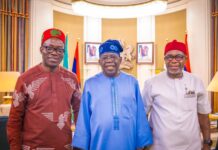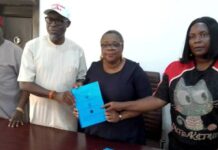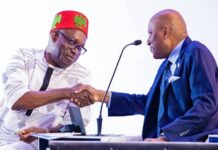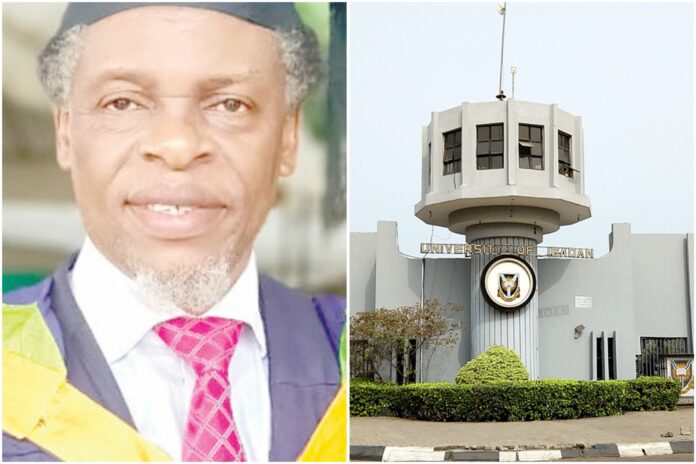Mallam F. K. Sanni, 60, is a chartered accountant and retired banker who went back to school for a first degree. Last November (2023), he graduated from the Department of Sociology, University of Ibadan — where two of his children are currently studying — with a First Class and as the best-graduating student. In this interview by KINGSLEY ALUMONA, he speaks about his life and times in the university and his advice for people of his age aspiring to achieve a similar academic feat.
At over 60 years of age, what was the motivation for you to pursue an undergraduate programme in Sociology?
I was driven more by internal motivation than external motivation. I wanted to become self-actualised. When we were younger, we had an uncle whose word was law. He would simply collect our O-level certificates, read out the subjects and grades and assign courses to us. The course assigned to me was Accounting. I didn’t know anything about accounting. That was how I entered the University of Ife and graduated in 1985 with honours in Accounting. Accounting is a fantastic course, but I didn’t have a passion for it. It does not resonate with my nature. For you to know how not passionate I was about accounting, after bagging that degree in 1985, I didn’t write the qualifying examinations of the Institute of Chartered Accountants of Nigeria (ICAN) until 1999, when one of my bosses, Sam Oniovosa, advised me to.
I was driven more by internal motivation than external motivation. I wanted to become self-actualised. When we were younger, we had an uncle whose word was law. He would simply collect our O-level certificates, read out the subjects and grades and assign courses to us. The course assigned to me was Accounting. I didn’t know anything about accounting. That was how I entered the University of Ife and graduated in 1985 with honours in Accounting. Accounting is a fantastic course, but I didn’t have a passion for it. It does not resonate with my nature. For you to know how not passionate I was about accounting, after bagging that degree in 1985, I didn’t write the qualifying examinations of the Institute of Chartered Accountants of Nigeria (ICAN) until 1999, when one of my bosses, Sam Oniovosa, advised me to.
So, I thought management was the way. I picked up an MSc in International Management, which I did at the University of Liverpool, and I graduated with eight distinctions. But I still realised that I was not satisfied.
So, when I retired, I went to the University of Ibadan to meet a brother of mine, Professor Abdul-azeez Oladosu, and told him what I had in mind and that led me to Dr Owodunni. When Dr Owodunni asked me the same question, I told him that I was always surprised about why people would behave the way they did. So, Dr Owodunni and I went to the Faculty of the Social Sciences and our first point of call was the Psychology Department. I cannot remember precisely the professor we met, but he explained that the focus of psychology was the individual and that we should try sociology. The then Head of the Department of Sociology asked if I wanted to do a master’s or a PhD. I told him I needed a bachelor’s degree.
I had thought that with my accounting degree, I would start from 200 level and spend just three years but that was not to be. They recommended that I wrote JAMB, which I did. I remember I was accompanied by my daughter, who was also seeking admission to the university that year. By the wish of Almighty Allah, both of us passed and we were offered admission to the University of Ibadan.
How did you feel studying with your children in the same university?
There was no problem with this because my children and I have been the best of friends. I have two of them there now — one in 400 level Law and the other in 200 level political science. We related as colleagues while in the school; and at home, we related as father and children. Even their friends saw me that way. I would sit them down, they would bring their questions to me, and I would clarify issues for them. I would also teach them strategies for answering examination questions.
How did your lecturers and younger undergraduate students see and treat you in the course of your programme?
I would not blame anybody for treating me in any manner. What made me happy was that I had lecturers who took it upon themselves to encourage me. They told me that I was an inspiration to them, that when they felt like getting tired, they would remember my person and charge on. On the other hand, I had lecturers who treated me at arms-length, not knowing exactly who I represented, and I don’t blame them. When they saw the cars I brought to school, they wondered “Is this man a spy?” I understood the message and made sure I didn’t trespass. I would never go to any lecturer to ask or beg for marks. I wouldn’t be late for classes. I would sit in the front row of the class and take notes. If a lecturer sneezed, coughed or made a joke, I would write it down.
The majority of the students saw me as a father, as their ‘Daddy’. However, some insisted on calling me Mr Sanni. I mentored some of them. About 95 per cent of the students in my class respected me and I gave them the latitude to relate with me. I knew they weren’t my biological children, so I wouldn’t take offence at anything they did. At times, they would make remarks not having it in mind that it might spite me, but I would not take offence. When they needed my advice, I would give them. But in a group of human beings, you would see those who would deviate.
What was your final-year project project about and what were the major findings from the work?
My project topic was ‘Domestic violence in polygynous Muslim marriages in Ibadan, Oyo State, Nigeria’. I was driven by personal enquiry to adopt this topic. I’m a polygynist and know that the temperature in my home is usually warm. So, I wanted to see whether other polygynous homes were like mine. Was there anything I was doing wrongly? Could there be learning points? Were there things that would wow me?
The project had five objectives. The first objective was to examine the various types of domestic violence in polygynous Muslim marriages, and they are physical violence, sexual violence, emotional or psychological or verbal abuse violence, controlling behaviour violence, and economic/financial abuse violence. The second objective was to examine the prevalence of domestic violence in polygynous Muslim families. The third objective was to understand the causes of domestic violence in polygynous Muslim homes. The fourth objective was to explore the consequences associated with domestic violence in polygynous Muslim marriages. The fifth objective was to ascertain the coping strategies employed by Muslim spouses facing the challenges of domestic violence.
Going forward, how would you use the knowledge and findings from your final-year project to impact your immediate community and society?
The findings seek ways of improving relationships with people, and in particular, with one’s spouse. The majority of the respondents didn’t agree that grabbing from behind should constitute domestic violence in an African setting. Generally, findings from the research arm one with the skills and resources to handle their spouses more effectively to reduce misunderstandings and disputes. If you can relate with your spouse effectively, to minimize the occurrence of conflict, there would likely be peace. Remember, where there is peace, there will be progress.
How did you manage the physical stress, academic stress and financial challenges associated with the programme?
The findings seek ways of improving relationships with people, and in particular, with one’s spouse. The majority of the respondents didn’t agree that grabbing from behind should constitute domestic violence in an African setting. Generally, findings from the research arm one with the skills and resources to handle their spouses more effectively to reduce misunderstandings and disputes. If you can relate with your spouse effectively, to minimize the occurrence of conflict, there would likely be peace. Remember, where there is peace, there will be progress.
How did you manage the physical stress, academic stress and financial challenges associated with the programme?
I was very cautious of my being. I didn’t deceive myself. I knew that age wasn’t on my side. When those kids embarked on unending reading, which they called Till Day Break (TDB), I was cautious of imitating them because I knew I wouldn’t have enough stamina as they did. So, I ensured I spent my time effectively. When I needed rest, I rested. If I had earmarked a time for some revision, I made sure that I revised. I usually ran by timetables.
I didn’t have much of a financial challenge. There is no amount of money that one has that would ever be enough. It depends on one’s class. I knew that I needed to pay the school fees of my children, including my school fees. I ran a very strong budget and documented, till today, every penny that I spent. So, I was able to have control over my expenses since my income was and is determinable.
In what ways did your wife and children support you during the programme?
They supported me tremendously, but support is also reciprocal. They would sacrifice, but they shouldn’t be stressed or stretched beyond boundaries. My children were very supportive. Even one of them would transcribe my data for me and run the IT part of my programme. Others were helpful too. However, I made sure that I didn’t deprive them of their rights. If I needed them to make any sacrifice, to endure anything, to persevere with me, I would persuade them to reason with me.
Were there problems or challenges you noticed in UI that you would like the Federal Government to intervene in?
I documented some of these challenges in my book. The first problem that requires urgent attention is infrastructural decay. Lecturers are enduring a lot. In this 21st century, the basic amenities on most occasions are not there. You see lecturers sweating in the classroom. There is an epileptic power supply and projectors might not be there. At times, the classrooms are overcrowded and not well-ventilated.
There is poor remuneration. I’m not aware of any professor that earns more than N500,000. That remuneration, for me, is too poor. If you convert that into dollars, we are talking about five hundred dollars. There is also limited funding for the universities, and funding is required for research and infrastructural development.
There is also the problem of high student-to-staff ratio. How do we expect the lecturers to know the students, not to talk of offering them advice? Let me limit the problems to that.
Now you are done with the bachelor’s programme, what is next for you?
By default, it should be an MSc in Sociology. However, Professor Omobowale advised that with what I had, I could open an office and start consulting. He suggested that I combine my first class in sociology with my master’s to pursue a PhD in Public Policy. Before then, I had written the master’s exams, passed the exams, and was asked to upgrade my MSc form to a PhD. I bought his idea. So, I’ve been admitted to the PhD programme in Public Policy, University of Ibadan.
Perhaps in three years, I should be able to finish the PhD programme. After the programme, I hope to continue lecturing both at formal and informal levels. I may pick up a degree in Law at that point in time. I still have my eyes on making A1s in O’level physics and pure mathematics.
When did you retire from banking?
I retired from the United Bank for Africa (UBA) in 2014. Retirement life can never be the same as life in active service. The best thing one can do to protect their future is to plan retirement instead of letting retirement plan for them. I had been expecting that moment and I was eager to leave Lagos for Ibadan. I believed that living in Ibadan would give me more rest and it did and it still does. One of the important things during life after retirement is economic consideration.
The second aspect is the social life after retirement. You have to get yourself engaged effectively and part of that was what taking up a degree in sociology did for me, and my continued endeavours at acquiring more knowledge are also fixing that for me.
What advice do you have for people your age who are studying or contemplating going back to school?
If somebody is not thinking about it or not studying at my age, it may be a bit difficult to convince him or her about that because it takes a lot of intentionality. It has to come from within. You must have a drive, something you are pursuing. It may be a bit difficult to start talking to somebody who probably does not have a great passion for education. It’s not something that can be forced on anybody, but where one is positively disposed to acquiring education, then that is a good point to start.
My advice to people who fit into this description is to remain focused and disciplined because there are many distractions. We are talking of the struggle to make ends meet, to finance the family, to keep above debt, and to maintain a healthy living.
So, one needs to persevere and continue to be prayerful that Almighty God should spare one’s life and grant them sound health to be able to pursue this kind of ambition to its logical conclusion.





